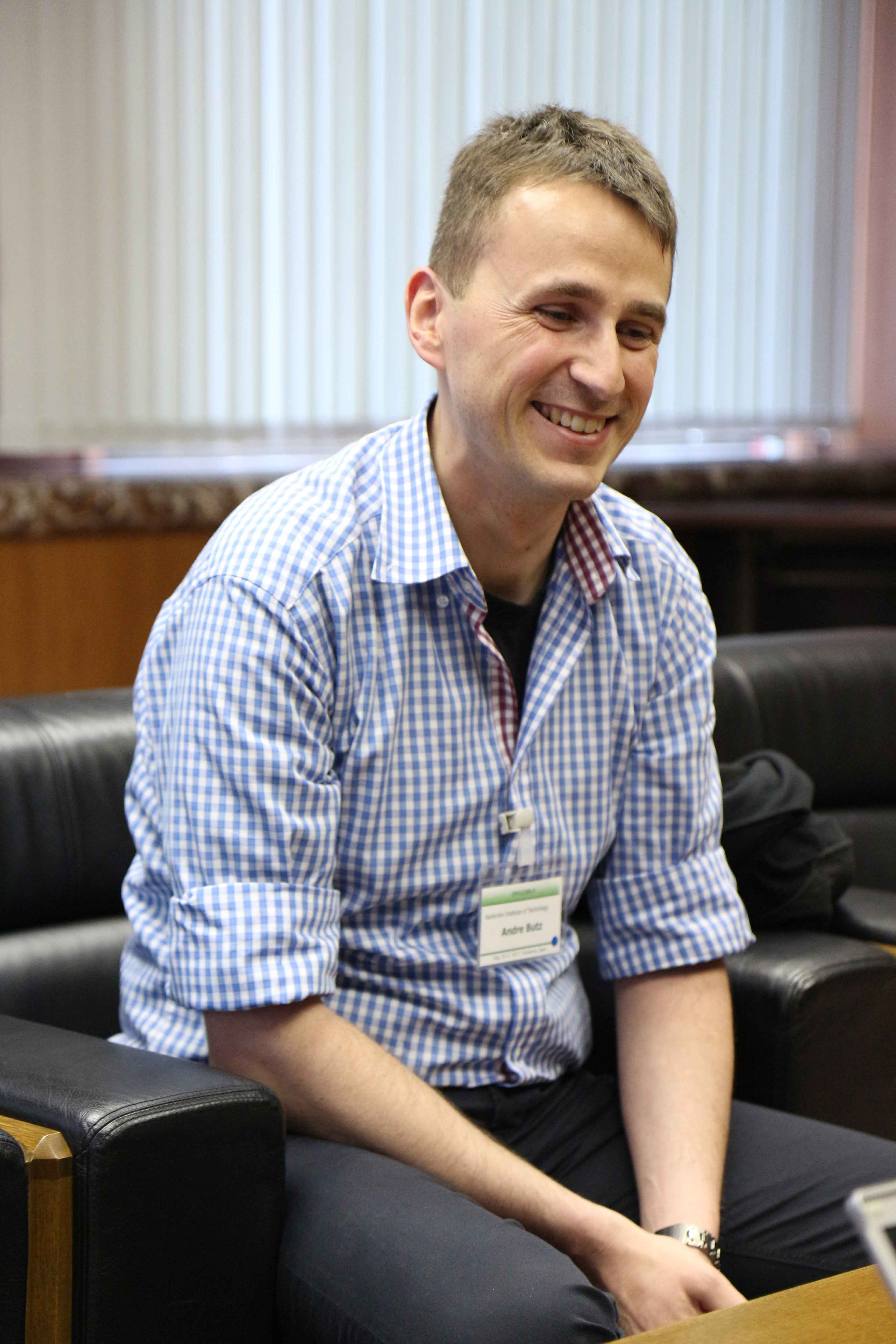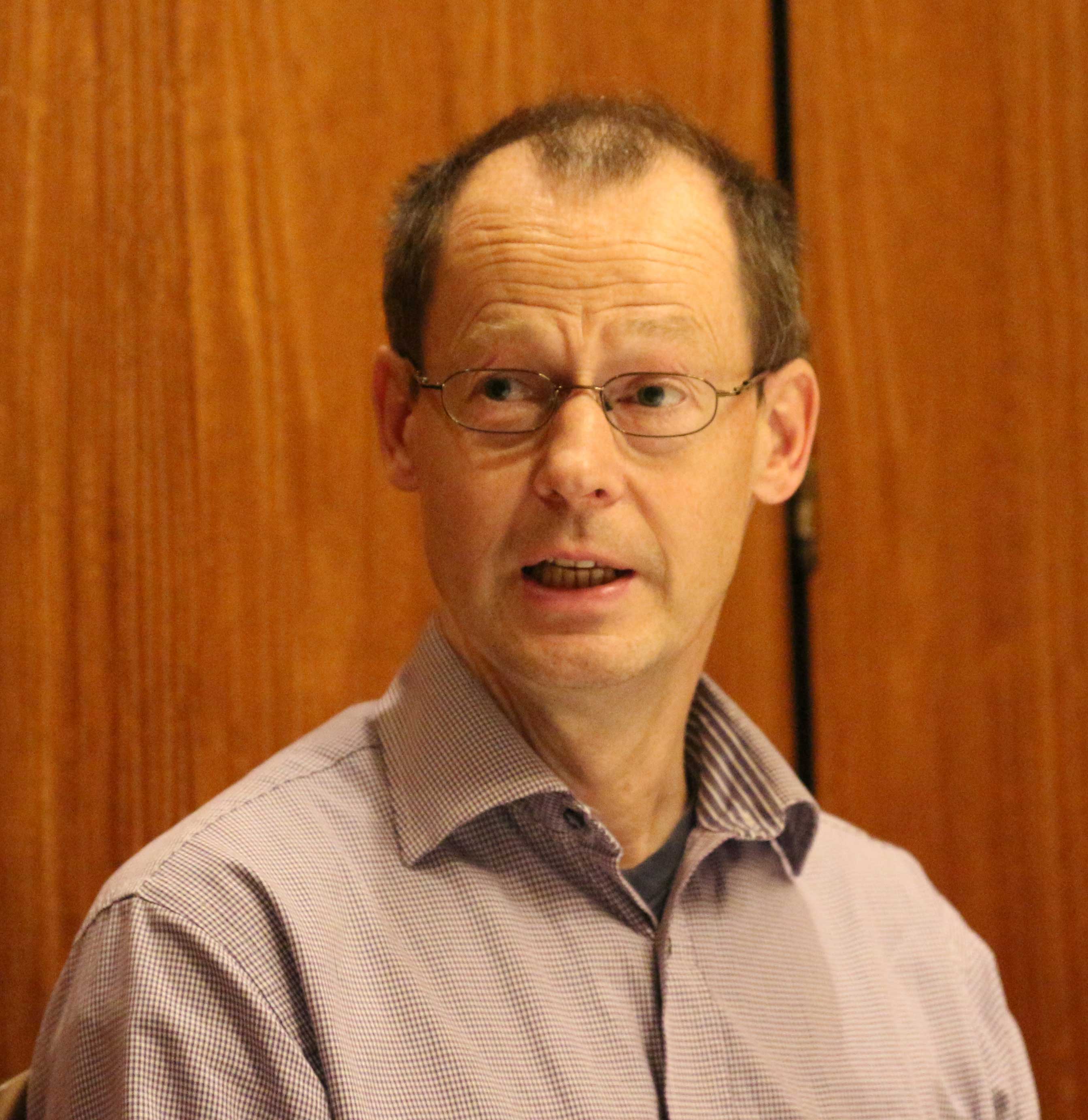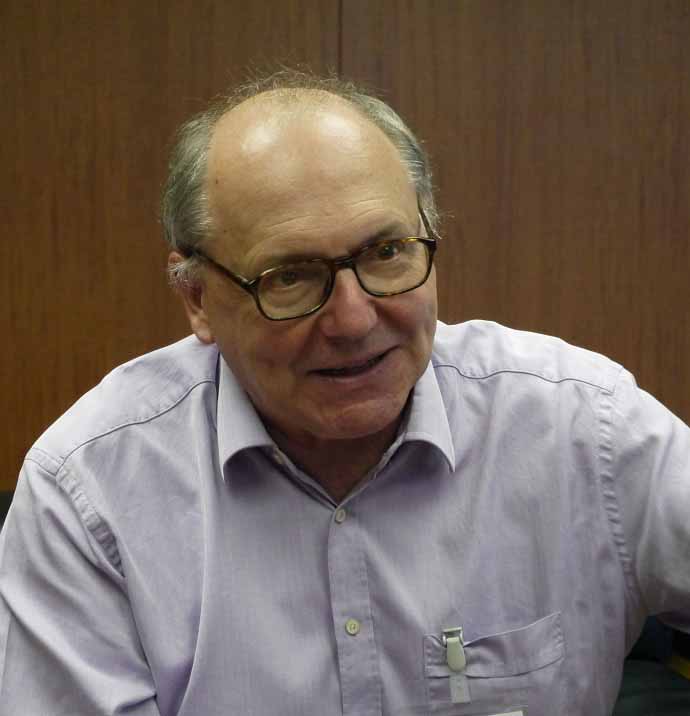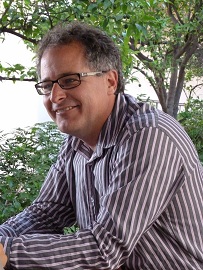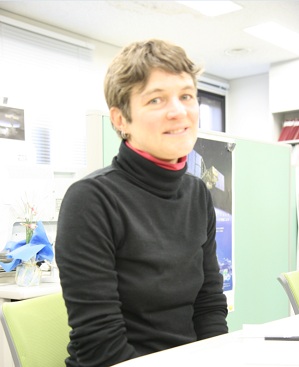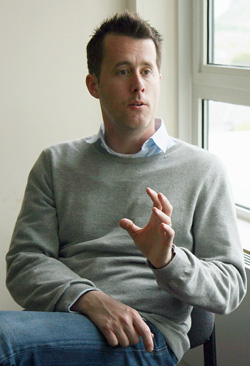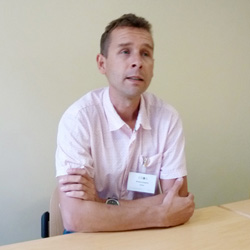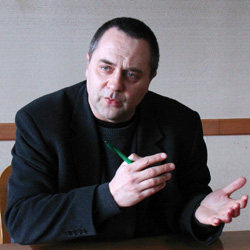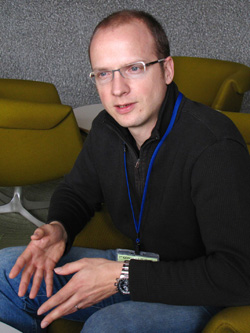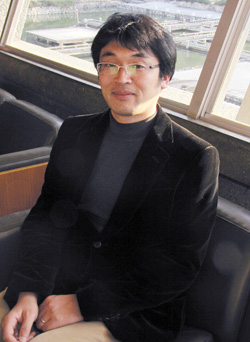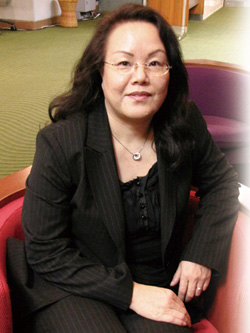![GOSAT PROJECT [ THE GREENHOUSE GASES OBSERVING SATELLITE: GOSAT 'IBUKI' ]](../../img/img_top.jpg)
- Top
- > NIES GOSAT PROJECT NEWSLETTER
- > IBUKI's PI Interview
No.11
Satellite remote sensing of GHG is a very challenging subject and it's also the chance to learn more about climate change. That's why I'm interested.
Dr. Andre Butz
Karlsruhe Institute of Technology
Germany
No.10
The GOSAT people are very open to give the spectra to other people. This is not normal, but it is very good, because this helped the whole community of scientists.
Prof. Justus Notholt
The University of Bremen,
Professor for Physics
Germany
No.9
GOSAT is a very successful mission and the first to really measure GHGs. It's also the first to demonstrate the usefulness of O2A-band.
Dr. Claude Camy-Peyret
CNRS Emeritus Scientist,
Co-chairman of IASI Sounding Science Working Group
France
No.8
I would like first to say that the spirit of generosity shown by the GOSAT three parties is a wonderful model for how we should attack problems which are important to all people on Earth.
Professor Paul Wennberg
California Institute of Technology
USA
No.7
The GOSAT data sets have reached maturity and can now be used to provide insights into the lobal carbon cycle. This is very exciting.
Dr. Vanessa Sherlock
Scientist
National Institute of Water and Atmospheric Research (NIWA),
New Zealand.
No.6
My speciality is to try to connect different disciplines together.
Professor Paul Palmer
School of GeoSciences,
University of Edinburgh, UK
No.5
We are looking forward to get the satellite data in our system.
Dr. Richard Engelen
Researcher
European Centre for Medium-Range Weather Forecasts
No.4
By analyzing the GOSAT data, we can also learn how to improve the SCIAMACHY data products.
Dr. Michael Buchwitz
Researcher
Institute of Environmental Physics of
the University of Bremen, Germany
No.3
It is often quite important to know a litte bit of both worlds, retrieval and scientific interpretation.
Dr. Christian Frankenberg
Scientist,
Jet Propulsion Laboratory,
California Institute of Technology, USA
No.2
I would like to contribute to the enhancement of the terrestrial biosphere models and understanding of how much IBUKI data affect in climate change prediction.
Associate Professor Kazuhito Ichii
Faculty of Symbolic Systems Science
Fukushima University, Japan
No.1
I wish that my studying results should contribute to the government's policy-making towards energy saving and CO2 reduction.
Dr. Lei Liping
Chinese Academy of Sciences
Center for Earth Observation and Digital Earth Sciences

